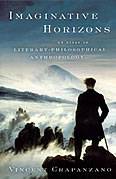
Research
Exploring political cultures through their diverse ethnographic manifestations, this research cluster brings together anthropologists working on the role of the imagination in political life. Our current research focuses on the anthropology of democracy and revolution on a comparative scale, mapping out the hopes, dreams, fears and dangers that accompany diverse modes of governance and emerging political experimentations across the world.
We focus on the everyday conceptions and practices of legislature, social and electoral violence, legality and security, democracy and the state at large, and revolutionary discourse and practice. Collecting political ethnographies beyond the domain of institutional politics, we delve into the intimate realms of family life, devotional practices, everyday discourse, leisure activities and the workplace, to ask such questions as: How are alternative political futures imagined and produced? Through what mechanisms do politicians gain popularity and charisma? What is political intimacy, and how is it created and maintained in different, social, cultural and linguistic arenas?
Research Projects
Lucia Michelutti is coordinating an international joint research programme entitled Democratic Cultures, funded by the European Research Council Starting Investigator Programme (2012-16) and the Economic and Social Research Council. The programme envisions new anthropological strategies to study ideas and practices of democracy and popular politics cross-culturally. We are currently investigating questions of leadership and charisma, cultures of elections and the relation between business cultures and democratic governance across South Asia in particular. Over the coming years, we aim to develop also comparative projects in Latin America, Middle East and Europe.
Alex Pillen is presently conducting long-term research in the Kurdish community of North London. The project addresses cultural and linguistic survival in the aftermath of genocidal politics, and was initiated during a Leverhulme Research Fellowship (2007-2009). The focal point for the study of this post-war society are the discourses on child and maternal health in the UK, as well as Kurdish regions in Turkey, Iran, Iraq and Syria. Statelessness and guerilla warfare form the background to a study of pain, affective regimes, slander, and evidentiality in everyday negotiations about healthcare and human rights. Extensive experience of ethnographic work in war-torn societies made this research feasible (see previous work published within the Ethnography of Political Violence Series at Pennsylvania University Press (2003), as well as Alex Pillen's role as advisory panel member of the Harry Frank Guggenheim Foundation for the Study of Human Violence, Dominance, and Aggression (2005-2009). The project also addresses Kurdish speaking audiences via satellite broadcasts, and this type of dissemination was funded by the UCL Public Engagement Unit.
Over the coming years, this project will be further developed in collaboration with LDC (Centre for Language, Discourse and Communication) at King's College.
Martin Holbraad is currently on research leave directing Making Selves, Making Revolutions: Comparative Anthropologies of Revolutionary Politics (CARP), a 5-year project (2014-19) funded by a Consolidator Grant of the European Research Council. Based on close ethnographic studies in selected countries of the Middle East and Latin America, the project brings an anthropological study of the relationship between revolutionary and religious practices to bear on existing conceptions of revolution, statecraft, and subjectivity in political theory. Its ambition is to launch the comparative study of revolutionary politics as a major new departure for anthropological research. This project builds on Holbraad's previous research on socialist ethics and religion in Cuba (funded by the British Academy, 2004-06) and his collaboration with the Centre for Advanced Security Theory, Copenhagen University, which explored the interface of anthropology and securitization theory in International Relations.
Events
For events associated with this research cluster please follow links above to individual research project webpages.
Selected Publications
Holbraad, Martin & Morten A. Pedersen (eds.) 2013. Times of Security: Ethnographies of Fear, Protest and the Future. New York & London: Routledge
Holbraad, Martin & Morten A. Pedersen. 2012. Revolutionary securitization: an anthropological extension of securitization theory. International Theory 4(2): 165-197
Michelluti, Lucia. 2008. The Vernacularisation of Democracy: Politics, Caste and Religion in India. Delhi, London: Routledge
Argenti-Pillen, Alex. 2003. Masking Terror: How Women Contain Violence in Southern Sri Lanka. Philadelphia: Penn University Press
 Close
Close


